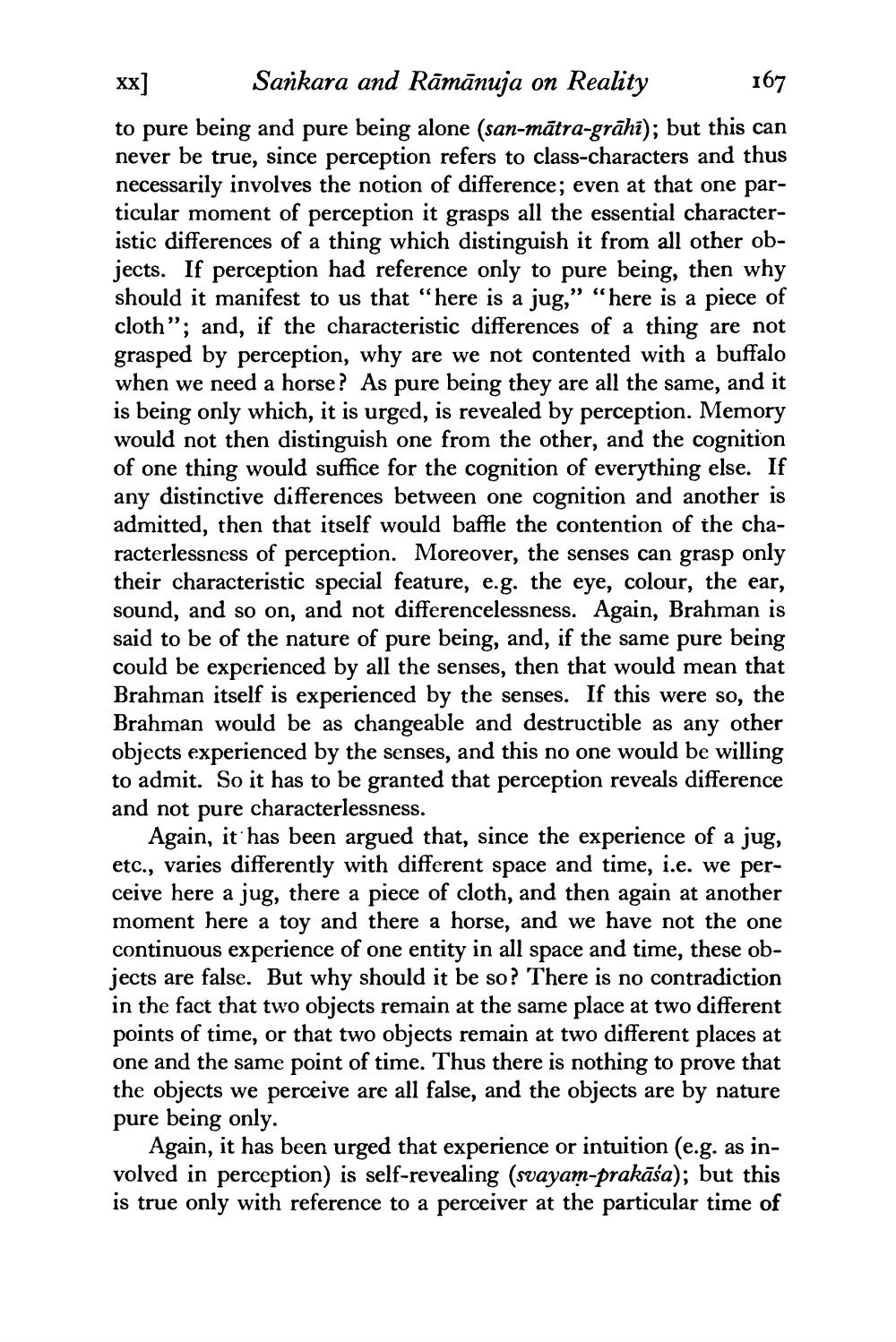________________
Sankara and Rāmānuja on Reality 167 to pure being and pure being alone (san-mātra-grāhi); but this can never be true, since perception refers to class-characters and thus necessarily involves the notion of difference; even at that one particular moment of perception it grasps all the essential characteristic differences of a thing which distinguish it from all other objects. If perception had reference only to pure being, then why should it manifest to us that “here is a jug," "here is a piece of cloth”; and, if the characteristic differences of a thing are not grasped by perception, why are we not contented with a buffalo when we need a horse? As pure being they are all the same, and it is being only which, it is urged, is revealed by perception. Memory would not then distinguish one from the other, and the cognition of one thing would suffice for the cognition of everything else. If any distinctive differences between one cognition and another is admitted, then that itself would baffle the contention of the characterlessness of perception. Moreover, the senses can grasp only their characteristic special feature, e.g. the eye, colour, the ear, sound, and so on, and not differencelessness. Again, Brahman is said to be of the nature of pure being, and, if the same pure being could be experienced by all the senses, then that would mean that Brahman itself is experienced by the senses. If this were so, the Brahman would be as changeable and destructible as any other objects experienced by the senses, and this no one would be willing to admit. So it has to be granted that perception reveals difference and not pure characterlessness.
Again, it has been argued that, since the experience of a jug, etc., varies differently with different space and time, i.e. we perceive here a jug, there a piece of cloth, and then again at another moment here a toy and there a horse, and we have not the one continuous experience of one entity in all space and time, these objects are false. But why should it be so? There is no contradiction in the fact that two objects remain at the same place at two different points of time, or that two objects remain at two different places at one and the same point of time. Thus there is nothing to prove that the objects we perceive are all false, and the objects are by nature pure being only.
Again, it has been urged that experience or intuition (e.g. as involved in perception) is self-revealing (svayam-prakāśa); but this is true only with reference to a perceiver at the particular time of




